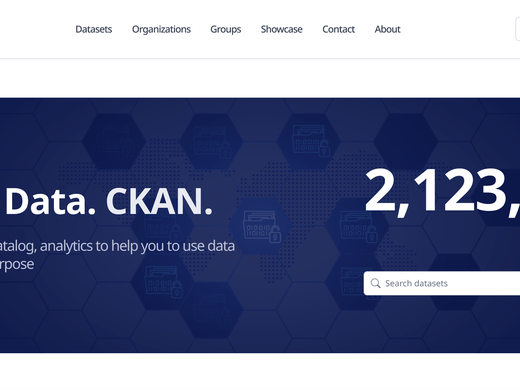Two developers based in Bermuda have launched a new online CKAN-based repository of Bermuda public open data,
Bermuda.io.
Louis Galipeau and Andrew Simons (below) took key public documents which were not previously available online, and put them on the site, which they set up for the purpose. Previously, members of the public could consult the documents and data only by looking at hard copies at the Bermuda National Library and Bermuda Archives. With the launch of Bermuda.io, users can now freely view or download them anywhere. Where necessary, documents have been scanned to get an electronic copy.
![[Photo: Galipeaau and Simons]](https://s3.amazonaws.com/bermuda-assets/Louis-Andrew-Bermuda.io.jpg)
Galipeau and Simons plan to publish a wide range of public data in both human and machine readable formats. They are currently compiling two decades' worth of financial statements from all government controlled organizations and public funds. The following have already been published, with records going back 20 years:
- The annual report of the Auditor General
- The “Budget Book” (Estimates of Revenue and Expenditure for the Year)
- The audited financial statements of the Consolidated Fund of The Government of Bermuda
- The Bermuda Digest of Statistics
- The Census Report
The developers have started with these documents because they go to the heart of the operations of Government. The Budget Book details planned revenue and spending, while the audited financials of the Consolidated Fund show the actual figures. The Auditor General’s report provides an independent opinion on the government’s financial management. Finally, the Digest of Statistics and the Census report contain economic and demographic data which provide important context.
Andrew Simons says the documents will enable people to have more informed discussions and debates. "They answer questions like ‘What’s the revenue from lobster licences each season?’, ‘What school renovations are planned for the following year?’ and ‘How much does a firefighter earn?’" He hopes the site will foster wider civic engagement on the island - and adds that it would not have been possible without CKAN.
The developers welcome feedback and suggestions on the site. Anyone interested can follow the
project blog or
Twitter account.
![[Photo: Galipeaau and Simons]](https://s3.amazonaws.com/bermuda-assets/Louis-Andrew-Bermuda.io.jpg) Galipeau and Simons plan to publish a wide range of public data in both human and machine readable formats. They are currently compiling two decades' worth of financial statements from all government controlled organizations and public funds. The following have already been published, with records going back 20 years:
Galipeau and Simons plan to publish a wide range of public data in both human and machine readable formats. They are currently compiling two decades' worth of financial statements from all government controlled organizations and public funds. The following have already been published, with records going back 20 years:

